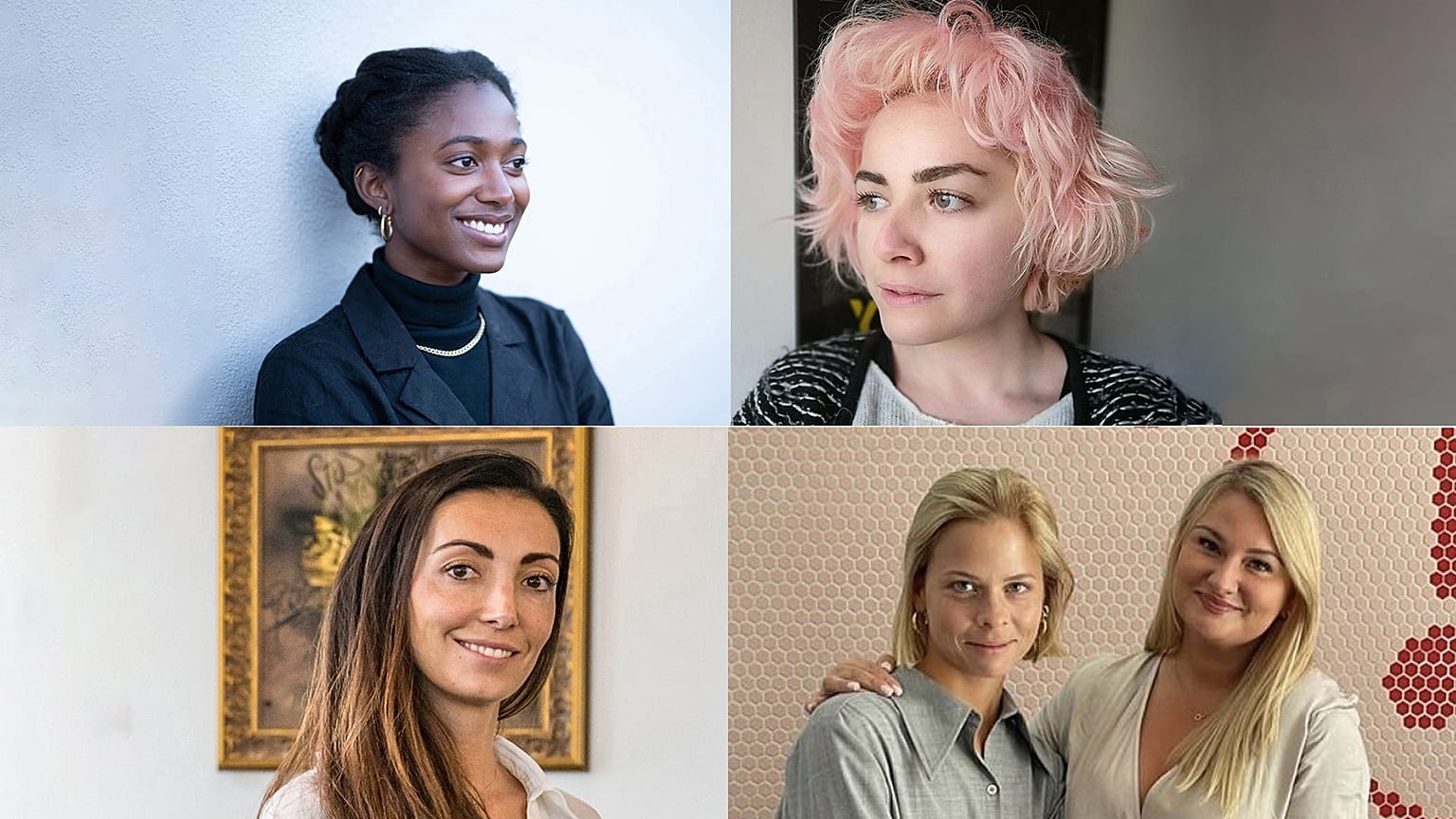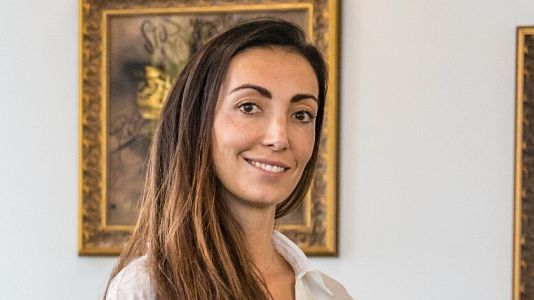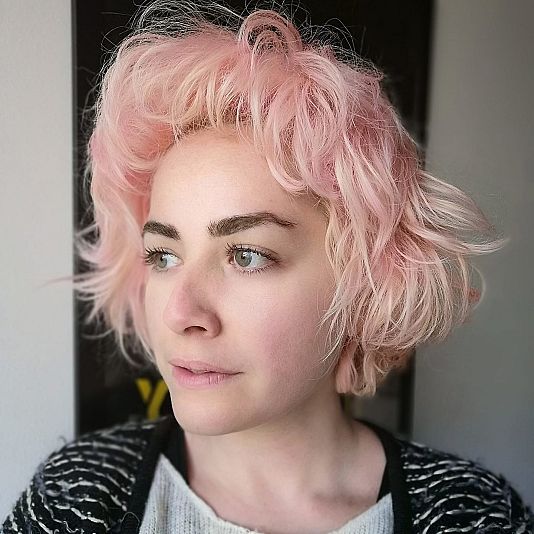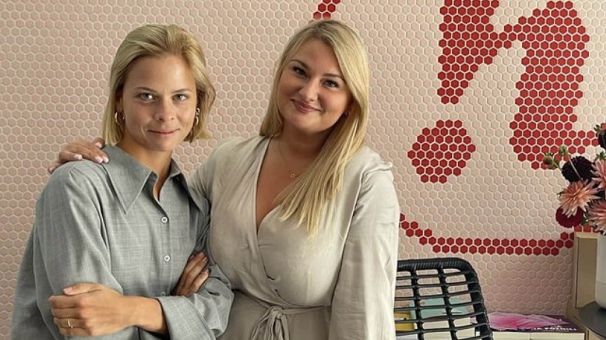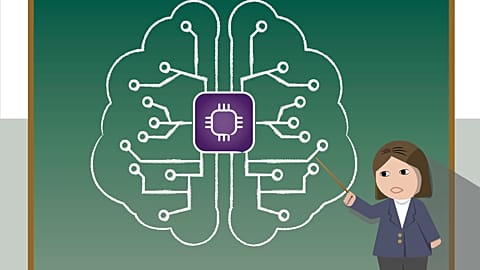Euronews Next spoke to the women who are breaking down barriers in the tech world and asked them why the industry is still falling flat on gender parity.
This article was first published in November, 2021, but has been republished for International Women's Day 2022.
 ADVERTISEMENT
ADVERTISEMENT
 ADVERTISEMENT
ADVERTISEMENT
Efforts to promote women in the tech sector are being made but the term has become somewhat of a buzzword and there is still a long way before gender parity is achieved in the industry.
It’s estimated that just 19 per cent of women make up the tech workforce and in Europe, only 15 per cent of start-ups are founded or co-founded by women.
But at Web Summit 2021, Europe’s biggest tech event, there were more women than men - tipping the balance with 50.5 per cent of attendees - at the November gathering for the first time in its 10-year history.
Clearly, women’s interest in the tech sector is high but the industry appears to be falling behind others in its efforts to recruit, promote and keep women.
Euronews Next spoke to some of the sector’s female CEOs and company founders who are breaking the barriers and asked them what is going wrong and what advice they would give to budding entrepreneurs.
'To be a woman is still a handicap' - Nanaba
Co-founded by Anne Laure Monier in the southern French city of Nice in 2020, start-up Nanaba is an online app that’s a win-win for children and parents.
It works by making your child play educational games before they can access other applications like YouTube, Instagram or TikTok.
"I created this company because I had a real difficulty with my son, a 12-year-old teenager who spent an incredible amount of time on platforms like YouTube, watching videos to the detriment of learning," Monier told Euronews Next.
"And I thought to myself I can't, as a mum, let him constantly unsubscribe (to those channels) on phones and tablets when they could also be wonderful learning tools".
Monier has worked as a business leader for more than 15 years but this is her first time working in the tech sector. As a female CEO, she finds the difficulties are in securing funding from investors.
"In 15 years, there has been a big improvement. On the other hand, as a start-up, currently in the process of fundraising in Europe, to be a woman is still a handicap because we need to justify ourselves. We have a lack of legitimacy and there are still fears of female leadership," she said.
"I find it really damaging because today, as a woman, we bring a lot of positive things to a company. There is a finesse and spirit which can be different".
Monier says France must improve the situation for women instead, especially in the start-up sector.
"Today, the state has a willingness to push for women in business. But there is the word and the deed. The word is beautiful but the acts do not necessarily match the words," she said.
"I have never received grants or things that actually support the status of women in leadership positions in companies. Within startups, it's even worse.
"That is to say that clearly, today, there is no support at all from the government, nor even state subsidies or things like that to be able to allow us to assert ourselves during fundraising".
But Monier says she is optimistic that these issues will be resolved in the future, especially as there is an increasing number of women in high power positions.
‘Jump right in’ - Katch
Alessandra Knight wanted to empower people to take back control of their time by facilitating ad hoc meetings over calendars. And that’s what the Katch app allows for.
"We want to give people the opportunity to take meetings in the moment and not have to be, I guess, chained to their calendars almost and stuck into these small, narrow meeting blocks," Knight told Euronews Next.
She says Katch especially helps women who work.
"We're able to kind of manager schedule shift our time to meet the goals that we're working on that will help the companies succeed, as well as meet our personal goals and for personal and work-life to kind of live harmoniously," she explained.
Made in California and born out of the COVID-19 pandemic, the idea for Katch came from her previous role as an executive assistant at gaming company Dots, where one of her responsibilities was managing her team’s calendars and she realised there had to be a better way of doing things to prioritise people’s time.
Her advice to others who want to take the leap to become a co-founder and CEO is simple: "Do it, absolutely jump right in".
"I think network with as many people can connect with as many people as possible and learn that there are so many people out there who are willing to share what they've learnt, share opportunities," she said.
"Find people who believe in you and who will support you in what you are doing or what you would like to do. Those are the people you want in your court, they will help you succeed at anything".
Knight said over the past eight years it has been wonderful to see thousands of women emerge onto the tech scene, including more Black women founders.
"I think we've all been here. It's just now we're really in front and centre place and can be at the table and having a lot more support, which has been one which has been really great," she said.
Her advice for companies who want to be more inclusive of women is to create equitable opportunities for women and for the tech sector to create space for women and support them.
'Investors are just interested in things like deep tech and fintech' - Omgyno
Based in Athens, Omgyno is providing a crucial health service for women and those who identify as female.
It is a telehealth service that the company says is to empower anyone with a vagina and works by offering carefully designed home test kits for the detection of diseases. Their team of verified gynaecologists can also provide expert medical advice in a safe and private space.
"We plan to expand throughout the Balkans and the Middle East in places where we feel like we're the most needed because there seems to be a relationship between conservative societies and doctors that are not really being very fair to a lot of our users," Omgyno CEO and co-founder Doreen Toutikian told Euronews Next.
Originally from Beirut, she has dealt with these issues herself.
"I found that if I wanted to look after my sexual health, I was constantly judged because a lot of doctors expect you to be married early on. They want to make sure that you have a baby," Toutikian said.
"They really make more money off of you when you are actually a pregnant woman and kind of dismiss you if you have an SDI or kind of look down on you. And then I started to realise that this is not just my problem, but a lot of problems that friends of mine have".
Her team then conducted a survey of over more than 600 people and found that in more closed-minded societies, women did not want to go to the doctor for fear of being judged. Toutikian also said many of those surveyed also reported abuse.
While the start-up is providing a lifeline for women, the CEO says finding investors is difficult.
"A lot of investors are just interested in things like deep tech and fintech," she said.
"When you see one or two small companies that are trying to do something innovative and caring for a specific group of people, it doesn't feel like it's on everyone's radar because they're thinking, 'does that really make any money?'"
The company does not make money from the doctors that they use so raising capital is key.
Omgyno only launched a few months ago but in that time it has raised €100,000 from a Venture Capital (VC) fund in Spain and also has an angel investor.
The company wants to expand throughout the Middle East and is looking to expand to the seed phase and is looking for €500,000 investment.
But Toutikian is optimistic investors are not only about profit.
"Hopefully, we're coming to a point where the social impact of a company will matter as much because it doesn't mean that these companies don't make enough money," she said.
“They just need enough chances to be able to get the investment to get started to do the social impact that they want to do and also be able to make enough profit for all the shareholders to be happy.
"It is very, very possible. I believe in it. I think that others should start getting in the same mindset as well".
'Be persistent' - Her Impact
Throughout the COVID-19 pandemic, women were more likely to lose their jobs or be put on furlough.
But in Poland, two women came together to create the community-based platform Her Impact, which helps women build their careers by helping them find jobs.
It is much more than just a networking platform; it gives women the tools on how to deal with unethical behaviour in the workplace and advice on how to launch their own business.
For the moment, it’s only available in Poland but the company wants to expand across Europe.
"According to our studies most women just want to feel included in the IT environment and treated equally as their male colleagues," founders Magdalena Linke-Koszek and Karolina Cwalina-Stępniak told Euronews Next.
They said the issue for women in tech is that it’s a male-dominated environment.
The reason for this, they say, is partly down to the education system, as during their childhood, the majority of girls are taught tech jobs are traditionally for men. They say this is untrue.
"There is a lack of awareness among women that in the world of technology there are also some more humanistic positions and that there are some new, modern paths for development in this direction," they said.
One of the core missions of Her Impact, they add, is to make inclusion possible and they are trying to help women to sharpen their potential by offering development tools.
Their advice for other women in the tech sector?
"Find a workplace with important values like gender diversity and be persistent".














